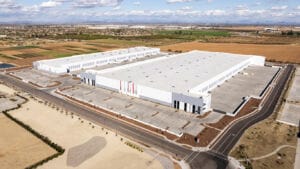
By J. Phillip Glasscock, CPA and Attorney at Law
If you are a commercial tenant, your business premises lease might represent your highest monthly expense and your longest business commitment. Before signing a commercial lease, a thoughtful exercise in “due diligence” can help protect you from getting burned. Here are some basic “dos and don’ts” for commercial lessees.
The Parties
It is important for you to know who owns the property. Is it a one-owner property, or will you have to get the approval of multiple owners for concessions, tenant improvements, subleases, and the like? If the owner’s lender takes over the property, will the lender honor your lease?
Knowing who you are leasing from is equally as important. The owner of the property is responsible to you for performance under the lease. Is the “landlord” a leasing company that does not own the property? It’s recommended that you make sure you are leasing from the owner.
The Premises
Investigate whether the premises, facilities, amenities and zoning meet all of your needs. Check out the zoning of the property to make sure you can operate your business there. Finally, always make sure to have an expert inspect the property for defects and make sure that mechanical, plumbing, electrical, phone, and internet access features meet your requirements.
Terms
Verify, verify, verify.
Before agreeing to any terms and signing on any lines, make sure to verify that the square footage of the premises in the lease is correct. Does it include unusable space such as common areas, elevator space, riser rooms or other space you can’t use? How is your share of building expenses calculated? Make sure you are only paying your fair share.
Leases typically list the types of expenses as “common area maintenance” (CAM) but do not limit the amounts charged. Get copies of last year’s charges. Look at the kinds of items charged and be alert to unlisted costs. Is the landlord is collecting reserves for future replacements? You don’t want to be surprised with a large expense for a new roof or repaving the parking lot if the landlord has not been reserving for these items.
After looking at the terms, you may find you want to “add-on” provisions? These might include sublease provisions (e.g., can you lease to a sub-tenant?), exclusivity clauses (do you want to prohibit the landlord from leasing space to your direct competitor?), and escape clauses.
Default Provisions
Know what will happen if you have a business reversal. Under what circumstances can you be locked out? What if you can’t pay rent?
Don’t Roll the Dice
By now you may have a new appreciation for the complexity of a commercial lease and the importance of due diligence before you sign it. Depending on the amount and type of space that you are leasing, and how you will be using it, you would be wise to ask an experienced real estate attorney to review your lease and help you identify issues that need to be resolved before you sign on the dotted line.
Whether you’re starting or growing a business, commercial leasing can be challenging. With these helpful tips, commercial lessees can rest assured they will know what they are getting themselves into when they rent space for their business.




